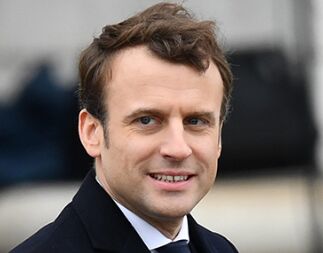马克龙赢得法国大选,意味着什么?
|
When Emmanuel Macron announced his bid for the presidency it was met with amusement by his opponents. But now he's going to become the youngest leader of France in the history of the Fifth Republic. At the age of 39, with no party to back him and no experience of elected office, many in the political classes dismissed his candidacy as a publicity stunt. However, France's politicians failed to see the threat Macron posed.
"Extraordinary" "There are no words which are strong enough to describe Macron's achievement," said Emmanuelle Schön-Quinlivan, lecturer in European politics at University College Cork. For many, the election was about the desire for a shift away from the current political classes. Beset by high unemployment, a stagnant economy, concerns around immigration and security fears following a spate of terror attacks, Macron will take the helm in France a difficult time. Europe breathes a sigh of relief While the election of Le Pen would have been greeted with horror in the corridors of Brussels and with trepidation in most other EU countries, Macron believes that France must remain at the heart of Europe and work closer with its neighbors. Macron has been adamant that closer integration between the countries that share the euro will benefit not only France, but the EU as a whole. However, he's advocated for reform of the currency union and has said the Euro zone should create its own budget. He has also spoken against reinstating borders in Europe, instead seeking more integration within the trading block. Macron's key challenges The third biggest economy in Europe, France has not recovered as strongly from the global financial crisis as its neighbors. Its unemployment rate is higher than the Euro zone average. GDP figures are finally improving, but they remain at very low levels, while the growth outlook from the International Monetary Fund is one of the weakest in the union. During the campaign, Macron promised to cut corporate tax rates gradually to 25% from 33%. He also wants to cut local housing taxes for the majority of French people and reform the wealth tax. He has pledged to cut public spending by 60 billion euros ($64 billion) a year, partly by making the government more efficient. He said he would cut up to 120,000 government employees by not filling positions as workers retire. He's also outlined plans for a economic stimulus, which he said would radically transform the French economy. What happens next? What is clear is that Macron will need to move fast, with the first round of the lower house legislative elections taking place on June 11 and the second round a week later. Macron is hoping his "En Marche!" party can make in roads in the parliamentary elections. One recent poll showed that Macron's "En Marche!" could win the largest share of Parliament's 577 seats. It would mark a meteoric rise for the fledgling party that launched less than a year ago. |









